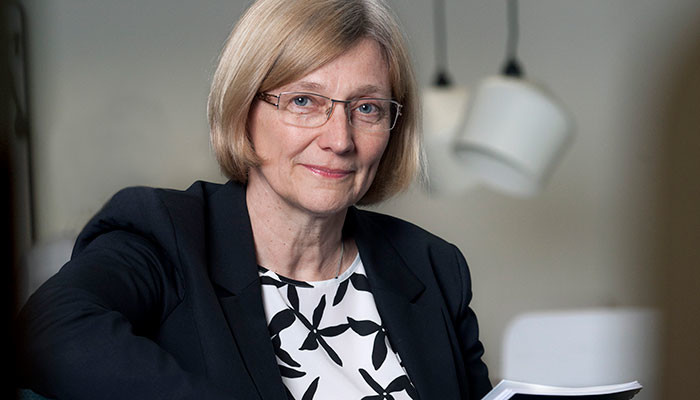Creating cruise ships requires research
The doctoral dissertation of shipbuilder Sisko Hellgren is a study into building cruise ships in a shorter time and at a lower expense – without sacrificing quality.

After over thirty years in the shipbuilding industry, Sisko Hellgren, 61, came up with the idea for her dissertation from a very mundane grievance.
Hellgren was working as project manager at the STX shipyard, thinking that there has to be a more effective way to construct the luxury cruise ships they worked on. Hours and expenses could be cut without sacrificing quality.
Designing and building a luxury cruise ship is a massive undertaking, measured in years. As is often the case with large projects, there are many phases where something can go wrong.
’Is the architect’s design technically feasible? Are there enough workers available at the right time? Will the schedule hold? If the answer to any of these is no, problems follow’, Hellgren says.
She began to look into what kind of organisation would be the most effective when it comes to building ships. Is it a top-down line organisation with its discrete departments, or a project-based organisation? A hybrid of the two formed the third option.
’The project-based organisation won out. It means everyone has clearly defined responsibilities. Everyone knows what they are doing. Distribution of work is sometimes unclear in a line organisation.’
City on the water
Hellgren put her decades of experience and observations to work in the dissertation.
’I hope young people and those new to the shipbuilding industry might find something in the dissertation to use in their own work. There is no reason to repeat past mistakes’, she says.
According to Hellgren, the industry is heavily dependent on technological research.
‘A luxury cruise ship is like a floating city that can travel the world. It produces its own energy, handles its waste, offers a variety of services… Building a ship requires not only marine technology but expertise from the fields of engineering that are used to design and build actual cities. You need architects and specialists in materials, mechanical engineering, environmental engineering and energy technology.’
Every new luxury cruise ship contains new technological solutions and new innovations created as the result of years of research.
Finding the right people for the job
The shipbuilding industry is experiencing an unprecedented period of growth. While order books are bursting at the seams, however, there is a shortage of skilled workers and designers. A similar situation can be identified at the Uusikaupunki automotive plant.
Now a project manager at Royal Caribbean Cruises, Hellgren has her fingers in this pie as well. She has taken part in launching FITech (Finnish Institute of Technology), which aims to help sate the industry’s appetite for experts.
FITech, which began operating last autumn, offers university students of technology a selection of study modules tailored to the needs of the shipbuilding and automotive industries. A large portion of studies are online.
‘It connects master’s students nearing graduation with companies that have projects fit for master’s theses. Kind of like a dating service’, Hellgren jokes.
FITech has had a successful start. The courses have been popular and the first students to complete tailored study modules are expected to graduate soon.


